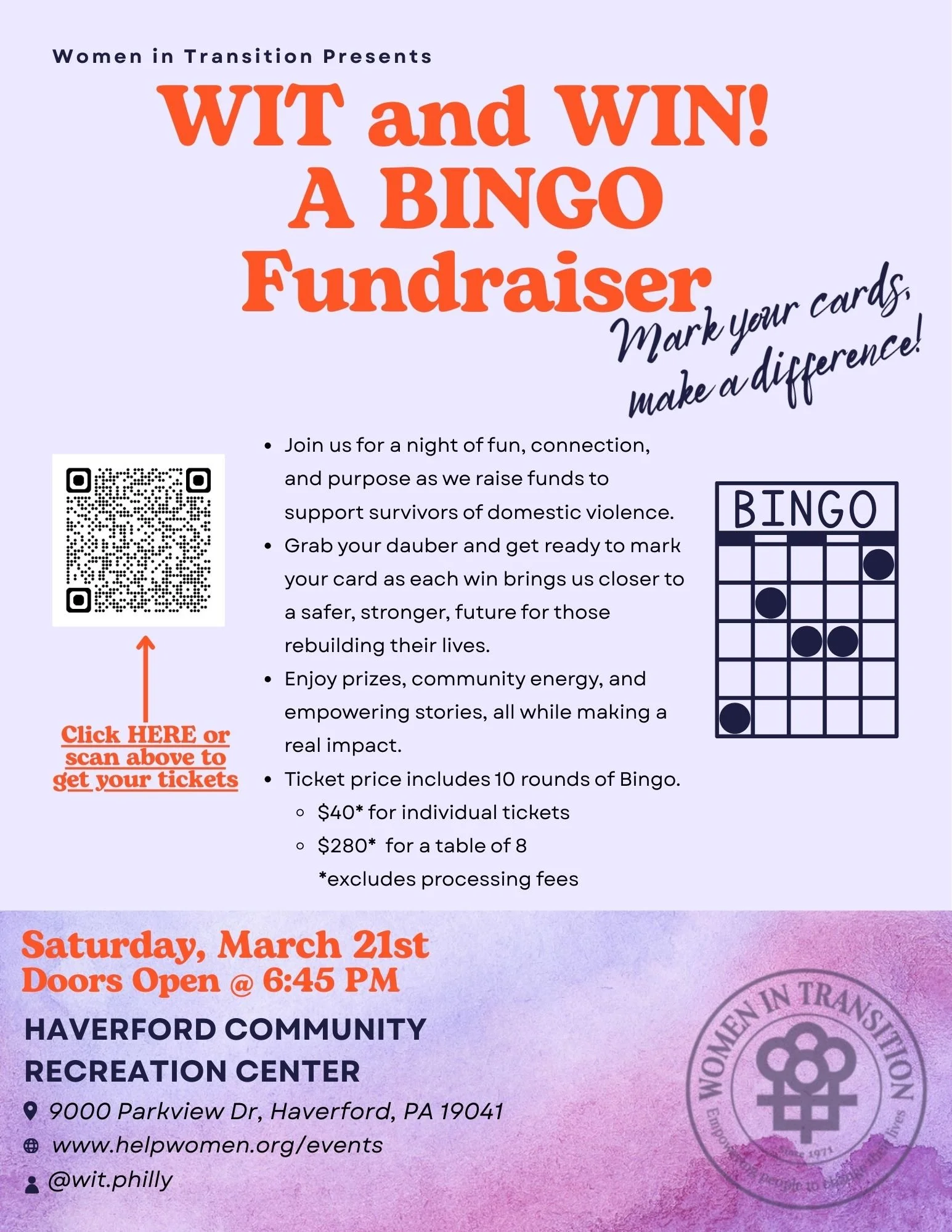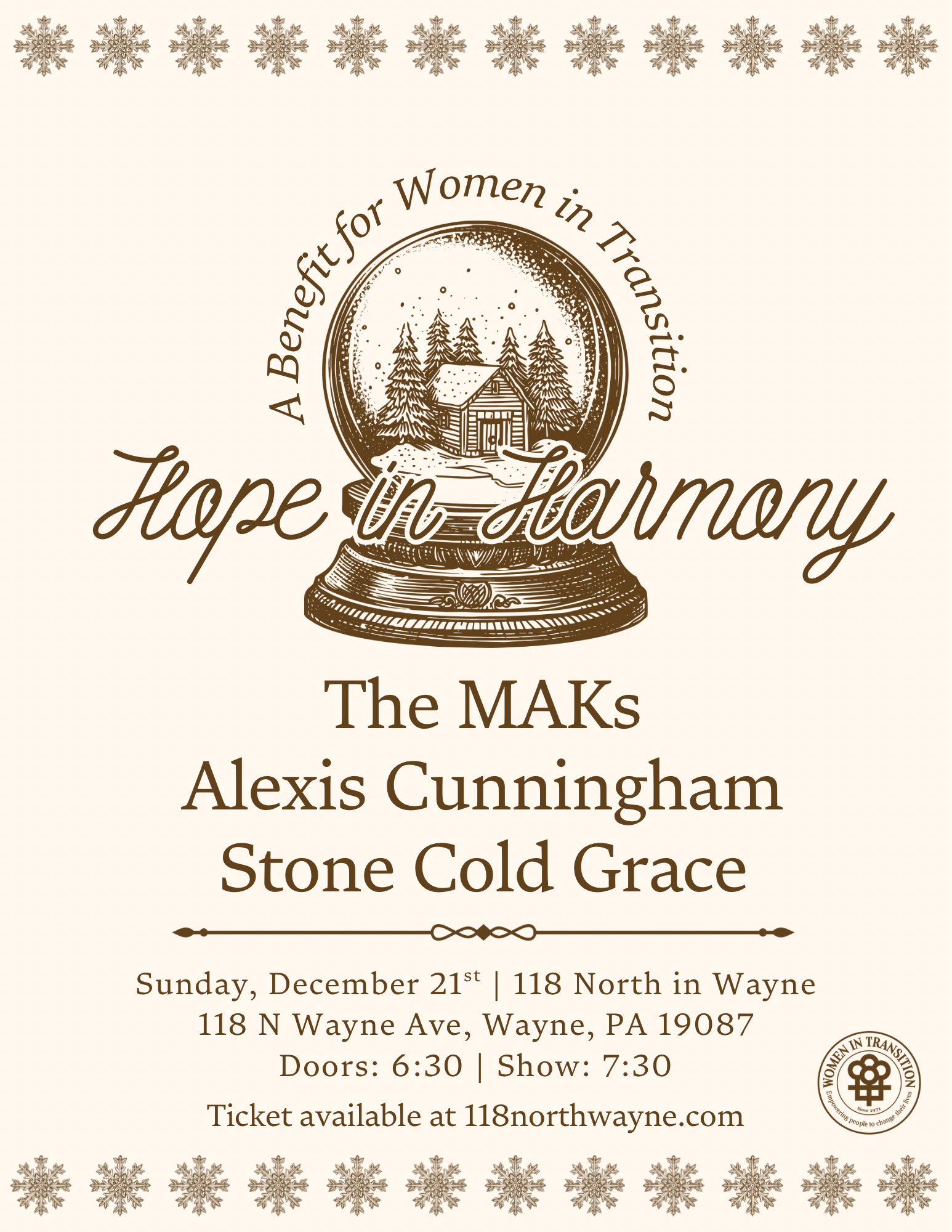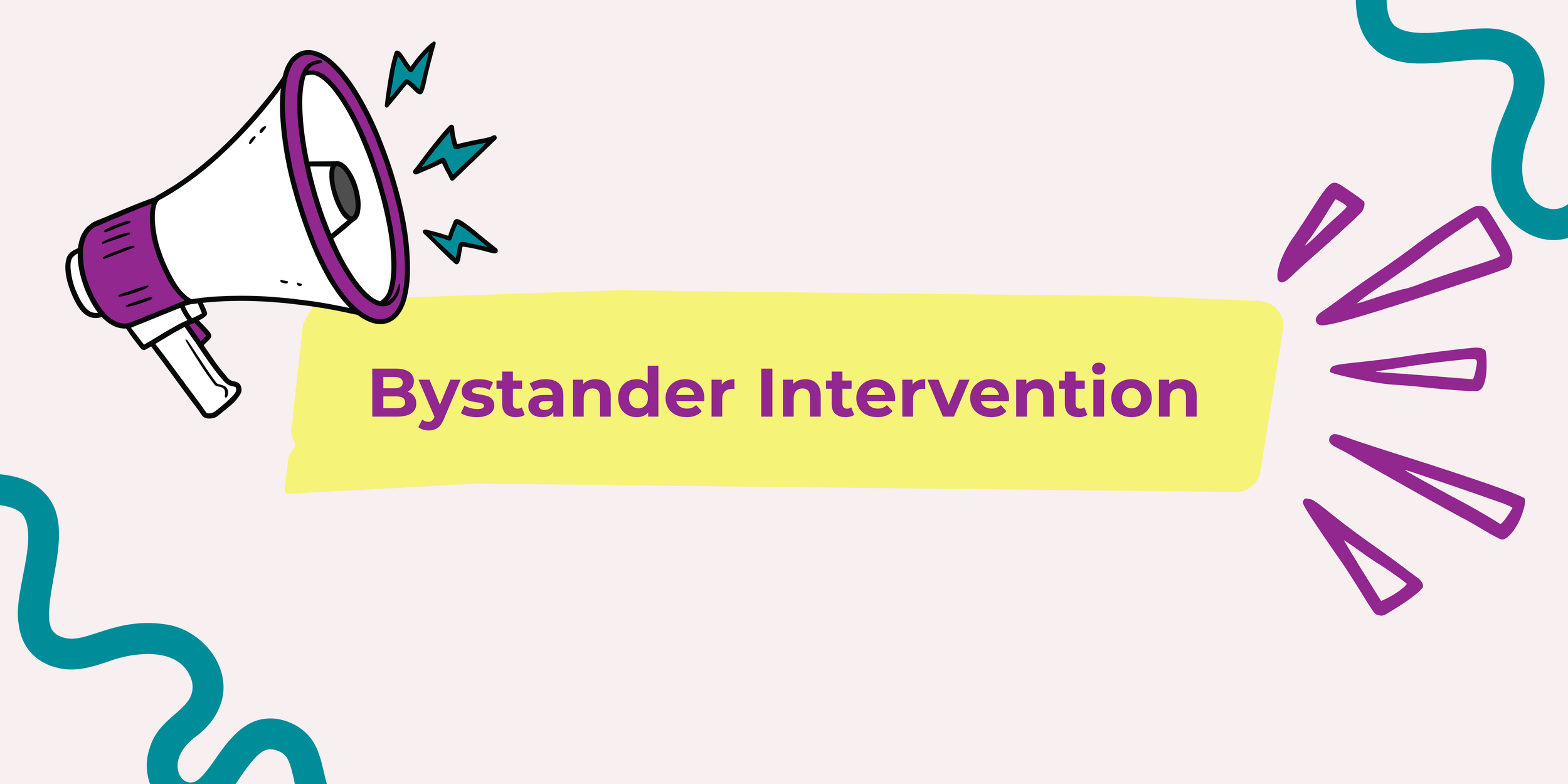Join us on Saturday, March 21st for a night of fun, connection, and purpose as we raise funds to support survivors of domestic violence.
Grab your dauber and get ready to mark your card as each win brings us closer to a safer, stronger, future for those rebuilding their lives.
Enjoy prizes, community energy, and empowering stories, all while making a real impact.
Ticket price includes 10 rounds of Bingo.
$40* for individual tickets
$280* for a table of 8
*excludes processing fees
Haverford Community Recreation Center, 9000 Parkview Dr, Haverford, PA 19041






